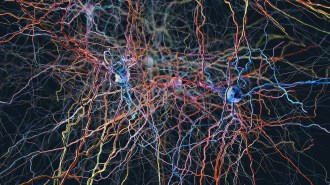Zaps to a certain spot in the brain may ease depression
The lateral orbitofrontal cortex, just behind the eyes, seems to be key

DOLDRUMS BEGONE People’s moods quickly improved after scientists stimulated a part of the brain, a finding that may ultimately usher in powerful ways to combat severe depression.
rawpixel/Unsplash.com






